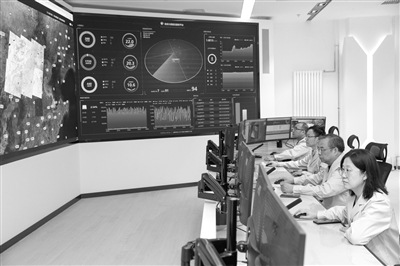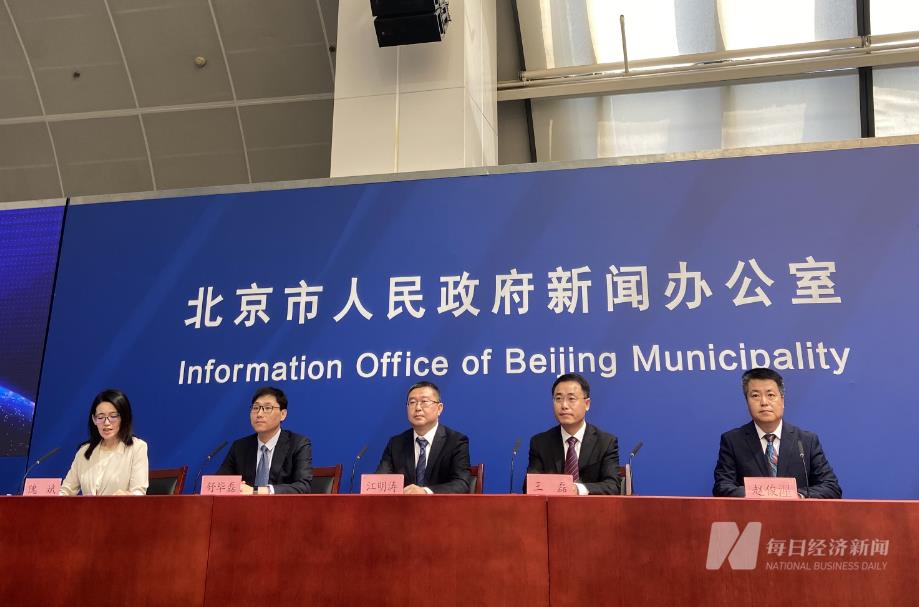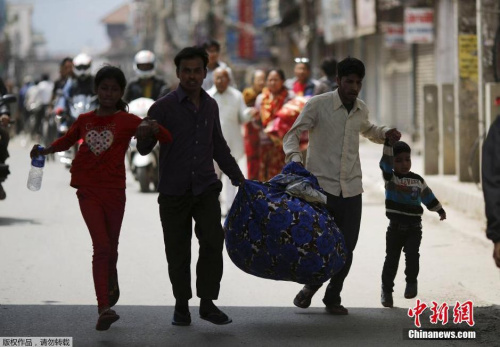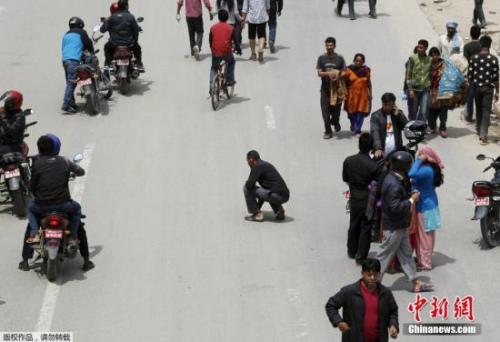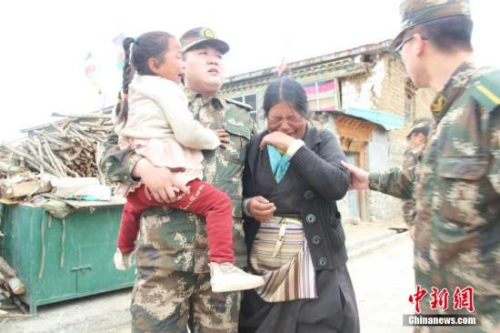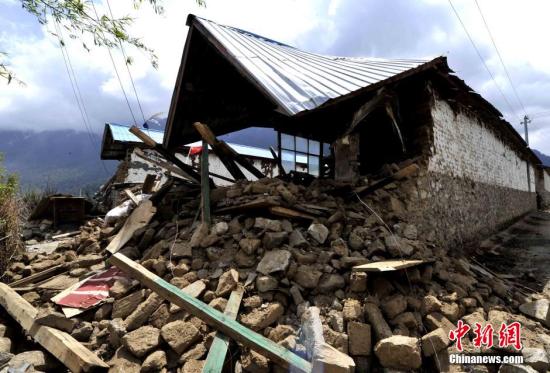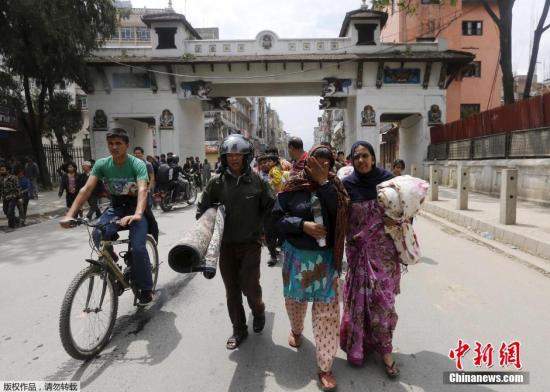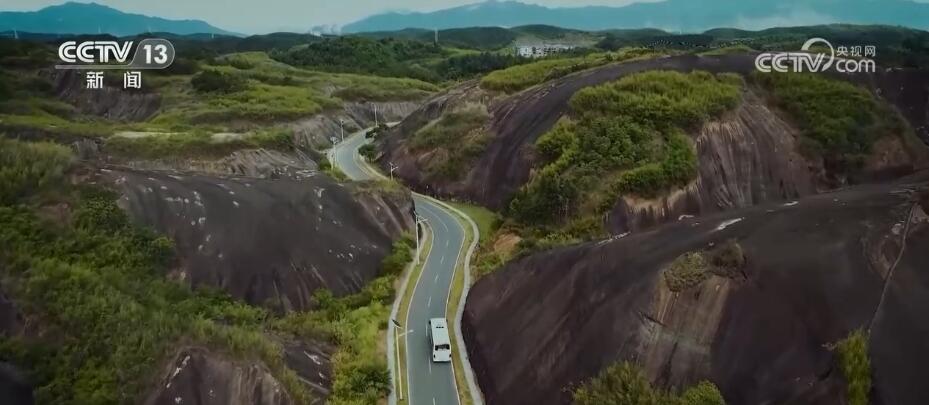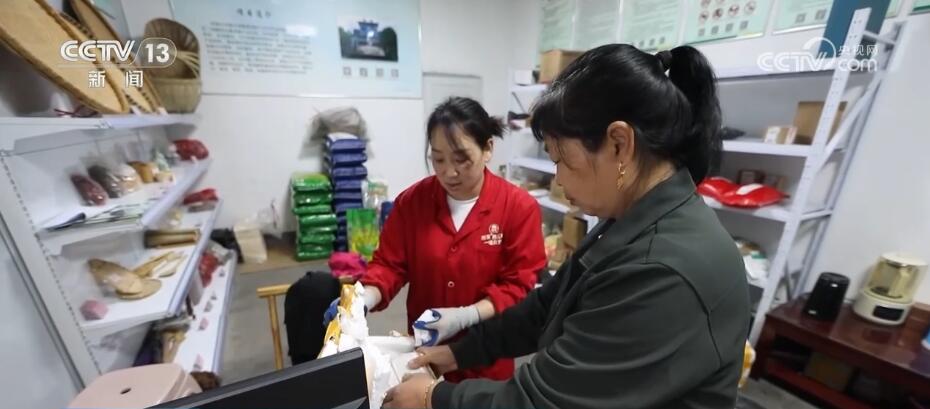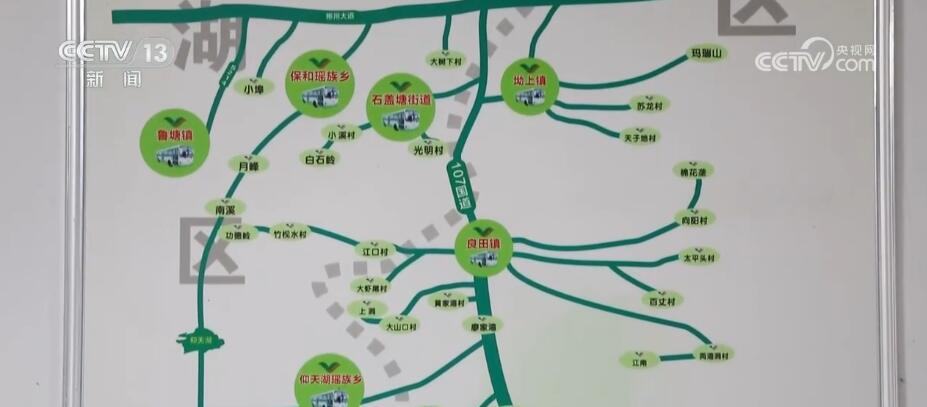The duty of the government is to conform to the people’s will and solve problems for the people.

On the morning of March 11th, the Fifth Session of the 13th National People’s Congress held a press conference in the Great Hall of the People, and Li Keqiang, Premier of the State Council of the People’s Republic of China attended the press conference. Xinhua News Agency reporter Yin Bogu photo
Reduce taxes and fees
Before the end of June this year, the remaining tax credits for small and micro enterprises will be refunded in one lump sum.
Reporter from American Consumer News and Business Channel: According to relevant research conducted by the National Finance and Development Laboratory, fee reduction is the biggest help for small enterprises, followed by tax reduction. Can you share with us specific data about the impact of tax reduction and fee reduction? In addition, due to the slowdown in the development of the real estate market, local government finances have decreased. What are your considerations in this regard? And when it comes to consumption, will the government consider issuing consumer vouchers and other similar policy measures?
Li Keqiang: The conclusion should be supported by theory and practice. From our practice in recent years, the effect of tax reduction and fee reduction is the most direct. I remember talking to more than a dozen entrepreneurs in the eastern region last year. They talked about the difficulties in the operation of enterprises and hoped that the state would introduce some macro-support policies. I said at that time that the central government’s policy reserves were available, but they needed to be used centrally. There are three choices, but you can only make multiple-choice questions, that is, choose one out of three. First, large-scale investment, maybe you can get an order. Second, issuing coupons may directly stimulate consumption. The third is to reduce taxes and fees for enterprises, stabilize employment and promote investment and consumption. They were silent for a while and almost replied with one voice, we chose the third option. Because this is the most direct, fair and efficient. Judging from the relevant reports I received this year, tax reduction and fee reduction are generally regarded as the first expectation of the government’s macro policy. It seems that fertilization has to be applied to the roots, and the roots can flourish.
I also saw from the materials that some people are worried that the marginal effect has been decreasing after the tax reduction and fee reduction has been implemented for several years, that is to say, the effect is not as great as before. The large-scale tax reduction and fee reduction we implemented this time is a combination of tax rebate and tax reduction, with a scale of 2.5 trillion yuan. When the economy was hit hardest in 2020, it was such a large policy scale that we finally survived, and this time we adjusted the structure and put the tax rebate first. The so-called tax refund means that according to the design of the value-added tax system, the market subject is similar to the tax paid first and then returned. We adopt the method of early tax refund, that is, we will refund the remaining tax to the enterprise at one time, with a scale of more than 1.5 trillion yuan. If the effect is good, we will increase our efforts.
We give priority to small and micro enterprises in tax refund, because small and micro enterprises are large in quantity and wide in scope, support a large number of employed people, and now it is the most tense and difficult time for them to have funds. Therefore, before the end of June this year, we will refund the remaining tax credits of small and micro enterprises in one lump sum, fully solve the remaining tax credits of some key industries such as manufacturing, R&D services and so on, and solve the incremental tax rebates for small and micro enterprises month by month. When I participated in the discussion in the CPPCC, a CPPCC member was an entrepreneur, and he told me that compared with other measures such as tax reduction and fee reduction and investment, the tax rebate effect came fastest and best. There may be many twists and turns in running a project. Tax refund is equivalent to finding money directly for enterprises and increasing cash flow, which is timely rain. It seems that it is better to say a thousand words than to do something practical, and this key measure must be put in place.
Reducing taxes and fees is a subtraction, but it is also an addition in essence, because if you retire today, you will increase tomorrow. If you reduce today, you may increase tomorrow. Last year, the money paid by the new tax market participants exceeded the money we reduced taxes in that year, which is recorded. Since we implemented the value-added tax reform in 2013, it has been reduced by 8.7 trillion yuan under the guidance of tax reduction. At that time, our fiscal revenue was about 11 trillion yuan, and last year it exceeded 20 trillion yuan, nearly doubling. Because enterprises have benefited from this process, the benefits have increased. It can be said that there are many fish in the deep water, which is to conserve tax sources and cultivate and expand market players.
Just now, you said that local fiscal revenue has encountered new difficulties, and we have noticed it. Therefore, this year’s increase in transfer payments from the central government to local governments is rare for many years, with an increase of 18% and a total scale of 9.8 trillion yuan. The tax rebate is mainly paid by the central government, and of course, local governments have to "chip in". Our tax refund money goes directly to enterprises. Considering the difficulties of the grassroots, our transfer payment subsidy funds go directly to the grassroots below the city and county. Local governments should be "iron cocks", and they should not spend any money they shouldn’t spend. They should not spend any less money on market players. An extra point would add luster.
Situation in Ukraine
Support and encourage all efforts that are conducive to the peaceful settlement of the crisis.
Reuters: Since Russia launched its attack on Ukraine, two million refugees and hundreds of civilians have died. People are also worried about the prospect of nuclear escalation, but China has never condemned Russia’s behavior or called it "invasion". Will China not condemn Russia anyway? Will China further provide economic and financial support to Russia in the face of sanctions? Are you worried that this will be negatively affected by sanctions from other countries?
Li Keqiang: As I said just now, China has always pursued an independent foreign policy of peace. Regarding the situation in Ukraine, China advocates that the sovereignty and territorial integrity of all countries should be respected, the purposes and principles of the UN Charter should be observed, and the legitimate security concerns of all countries should be taken seriously. China makes our own judgment on this basis and is willing to play an active role in returning to peace with the international community.
The current situation in Ukraine is indeed worrying. We should do our utmost to support Russia and Ukraine to overcome difficulties and negotiate a peaceful outcome. We support and encourage all efforts that are conducive to a peaceful settlement of the crisis. It is urgent to avoid the tension from escalating or even getting out of control, and the international community and all parties have a consensus on this.
China calls for maximum restraint to prevent a large-scale humanitarian crisis. China has put forward an initiative to deal with the humanitarian situation in Ukraine and will continue to provide humanitarian assistance to Ukraine.
At present, the world economy is already very difficult because of the impact of the epidemic, and the relevant sanctions will have an impact on the recovery of the world economy, which is not good for all parties. China is willing to make its own constructive efforts to safeguard world peace and stability and promote development and prosperity.
stabilize employment
Give full play to the wisdom of ordinary people, and the big stage of employment will be colorful
Reporter from China Central Radio and Television General Station: At present, we have seen that some enterprises have unstable expectations, some industries have reduced their jobs, and some enterprises have laid off employees. On the other hand, the new population in need of employment is increasing. May I ask the Prime Minister, what measures will we take this year to achieve the goal of stable employment?
Li Keqiang: Employment is not only a livelihood issue, but also a development issue. Only when you have employment can you earn money, make a living and create wealth for the society. I remember when I went to the enterprise for investigation last year, a person in charge of the enterprise told me that in August, many employees advanced their wages to him. Why? Children have to pay tuition in September. Before the Spring Festival, I went to the northwest countryside for investigation. A farmer told me that it costs more than 10,000 yuan a year for one of his children to go to college, and more than 8,000 yuan a year for another child to go to high school. It is impossible to grow a few acres of land, but there must be income from working. I am really moved by our people. They are working hard. Working and getting jobs are not only related to the current family livelihood, but also strive for a better future for the next generation.
This year, we will strengthen the implementation of macro policies, and fiscal and monetary policies should focus on achieving employment goals. Therefore, we emphasize that employment priority is also a macro policy, and other policies should be matched to achieve employment goals. At present, we must create more than 11 million new urban jobs every year, and it is better to have more than 13 million people. I always feel that as long as we achieve full employment, we can realize what some people call the potential economic growth rate of China. For example, when the epidemic hit hard in 2020, we didn’t set an economic growth target, but we set a clear target, that is, more than 9 million new urban jobs were created, and as a result, more than 11 million new urban jobs were created. The economy not only achieved positive growth, but also the growth rate reached 2.2%, which was the only one among major economies to achieve positive growth.
This year, the number of new urban laborers who need employment has reached about 16 million, the highest in many years. There are 10.76 million college graduates, the highest in history. There are also nearly 300 million migrant workers who have the opportunity to work, and they must also ensure the employment of retired soldiers. There are still some enterprises that live and die, and some people want to re-employment. The new labor force in cities and towns is growing, and a new employment platform is needed. For the newly-added people who need employment, we should give them various support measures such as training and solve the employment problem by market-oriented methods. For example, in recent years, we have been promoting mass entrepreneurship and innovation, promoting the development of new technologies, new formats and new models, and cultivating new kinetic energy. We believe that ordinary people are intellectually intelligent, and if their special skills and intelligence are brought into play, the big stage of employment will be colorful.
Flexible employment has to be mentioned here, because there are more than 200 million people in this field, with various forms and wide coverage. As a developing country, this form of employment will exist for a long time. It is really hard for them to come and go in the wind and rain, and many places are providing them with warm-hearted services. In view of their labor rights, social security and other issues, the government should gradually improve the policy, that is to say, these "riders" should be tied with "safety belts", so that new employment forms such as flexible employment can not only solve urgent needs, but also stimulate market vitality and social creativity.
Optimize the business environment
The government must carry out the reform with the cutting edge inward, so that the market players can emerge one after another and be full of vitality
Xinhua News Agency: In recent years, although China’s business environment has improved, market players have increased substantially, and enterprises have made things much more convenient, there are still many kinds of interference. What efforts will the government make to optimize the business environment and stimulate market vitality and creativity under the current circumstances?
Li Keqiang: In recent 10 years, the State Council has held a national conference every year to promote the "streamline administration, delegate power, strengthen regulation and improve services" reform and optimize the business environment. I also noticed that at the beginning of this year, many places held meetings around the theme of improving the business environment. It can be said that the "streamline administration, delegate power, strengthen regulation and improve services" reform is to improve the growing soil for market players, to reduce taxes and fees is to fertilize and water them, and mass entrepreneurship and innovation are to promote more market players to take root. As long as we bring people’s creativity into play and stimulate the vitality of market players, everyone can imagine the vivid situation of the economy. However, the government must carry out the reform with the cutting edge inward, and can’t let the government departments turn around their own power, but through the reform, the market players will emerge one after another and be full of vitality.
It is more difficult to touch the interests than the soul. However, the importance of government is constant. In recent years, we have continued to promote market-oriented reform and the "streamline administration, delegate power, strengthen regulation and improve services" reform. More than 1,000 administrative licenses have been decentralized or cancelled, and non-administrative licenses have withdrawn from the historical stage. In the past, it took dozens of days to get a license for running a business, and it took hundreds of days. Now it takes an average of four days nationwide and one day in the least places. At present, about 90% of government services are online, handheld, off-site, and not met. In fact, this is breaking the barriers of interests and breaking through the traditional thinking. We will continue to promote measures that benefit enterprises and benefit the people.
Through the continuous improvement of the business environment in recent years, China’s market entities have reached 150 million, a net increase of about 100 million compared with 10 years ago, mainly private market entities, including 100 million individual industrial and commercial households. Don’t underestimate individual industrial and commercial households, they are connected with the livelihood of many people at one end and the consumption of the public at the other. When I participated in the discussion in the CPPCC, those entrepreneurs said that if small and micro enterprises and individual industrial and commercial households did not get through the "micro blood vessels", large and medium-sized enterprises and even state-owned enterprises and central enterprises would not be able to move.
Let’s take a look at the places with good economic development. There are great reforms, good business environment and many market players, so the economy is full of enthusiasm. Of course, I have repeatedly stressed that "liberalization" and "management" go hand in hand. "liberalization" is not a responsibility, but "management" is a duty that the government must perform. "Liberalization" is not laissez-faire. We must resolutely crack down on those acts of counterfeiting, cheating and abduction, especially in some fields involving people’s lives and health and the interests of the masses, such as food and medicine, safe production and finance. Those who violate the law must be punished. Now the new format and new model are constantly changing and developing. We should constantly improve the regulatory regulations and methods so that market players can truly compete and develop in a fair and just environment.
Hong kong epidemic situation
The SAR government should take the main responsibility of fighting the epidemic, and the central government will fully support Hong Kong in fighting the epidemic.
Phoenix TV reporter: Since last year, the Hong Kong Special Administrative Region has held elections for the Election Committee and the seventh Legislative Council. This year, the sixth Chief Executive election will be held. On the one hand, a new electoral system is implemented; on the other hand, the epidemic situation in Hong Kong has not shown signs of improvement, and everyone is very concerned about this election. How does the Prime Minister comment on this?
Li Keqiang: At present, the epidemic situation of COVID-19 in Hong Kong is grim. The SAR Government has decided to postpone the election of the sixth Chief Executive according to law and concentrate on fighting the epidemic. We fully understand and support it. The central government pays close attention to the epidemic situation in Hong Kong every day, and is very concerned about the life, health and safety of Hong Kong citizens. The SAR Government should assume the main responsibility of fighting the epidemic, and the central government will fully support Hong Kong in fighting the epidemic.
We will comprehensively, accurately and unswervingly implement the policy of "one country, two systems", "Hong Kong people ruling Hong Kong" and a high degree of autonomy, and the change of the SAR government will be carried out in strict accordance with the relevant provisions of the Basic Law. I hope that the SAR Government will unite and lead people from all walks of life in Hong Kong to continue to develop the economy and improve people’s livelihood, consolidate and enhance Hong Kong’s position as the three major international financial, trade and shipping centers, and maintain Hong Kong’s long-term prosperity and stability.
epidemic prevention and control
Make prevention and control more scientific and accurate according to the change of epidemic situation and virus characteristics.
Spanish EFE reporter: It has been two years since the outbreak. In the past two years, China has basically been "closed". Does China now consider making the current "dynamic zero clearing" epidemic prevention and control policy more sustainable? Is there a road map that is "open" to the world?
Li Keqiang: Covid-19 is the common enemy of mankind. It has been spreading for two years, and the virus has been mutating. Some laws need to be further studied, and corresponding measures such as vaccine protection and effective drug research and development need to be strengthened. At present, the international community should unite, cooperate and help each other, understand and tolerate each other more, and work hard to create conditions for the world to return to normal.
China has been coordinating the prevention and control of epidemic situation and economic and social development, and actively promoting international exchanges and cooperation. We will make prevention and control more scientific and accurate according to the changes of epidemic situation and the characteristics of the virus, so as to ensure people’s life and health, normal production and living order, and the safety of industrial chain and supply chain.
Since the outbreak, I have talked with the heads of international organizations, multinational companies and entrepreneurs many times, and they all hope to ensure the necessary business contacts. We have opened "fast track" and "green track" to ensure the normal production and operation of some key enterprises and projects. We will continue to accumulate experience, respond to possible changes in a timely manner, and gradually make logistics and people flow smoothly.
Sino-US relations
Sino-US cooperation has great potential and is willing to seek long-term benefits with the United States.
Bloomberg: Fifty years ago, US President Nixon’s visit to China ushered in the era of American contacts with China. Last year, the Biden administration announced that this era had ended, and the United States and China are now entering a period of fierce competition. Do you agree with this evaluation? Will it become more and more common to ban the sale of American semiconductors in China and the listing of China enterprises in the United States?
Li Keqiang: Fifty years ago, China and the United States broke the ice and set sail for the normalization of relations. Half a century has passed, and although the relations between the two countries have been bumpy from time to time, they have been developing forward. We still hope that the two sides will respect each other, coexist peacefully and win-win cooperation in accordance with the consensus reached by the two heads of state at the end of last year, properly control differences in a rational and constructive way, and respect each other’s core interests and major concerns. Still need more dialogue and communication. Since the two sides have opened the door to each other, they should not close it again, let alone "decouple".
China and the United States are permanent members of the United Nations Security Council and the largest developing and developed countries in the world. Dealing with each other’s relations is related to the well-being of the two peoples. At present, many global challenges require cooperation and joint response between China and the United States. It should be said that Sino-US cooperation is beneficial to both countries and the world.
Of course, there are great differences in social systems, history, culture and development stages between China and the United States, and differences are inevitable. But we believe that cooperation should be the mainstream, because world peace and development depend on cooperation. Even if we have market competition in the economic and trade field, it should be benign and fair competition. Last year, the trade volume between the two countries exceeded $750 billion, an increase of nearly 30% over the previous year. What does this mean? The scope of Sino-US cooperation is vast and has great potential. If the United States relaxes its export restrictions to China, the bilateral trade volume will be even larger, and both countries and their peoples will benefit from it. China is willing to work with the United States to choose a wide range and seek long-term benefits.
Support difficult industries
Support industries with special difficulties to survive and make people’s lives warm.
China News Service reporter: In the past two years, affected by the epidemic, we found that some snack bars and small restaurants that we used to go to have not opened since they closed, including catering, and tourism, retail, passenger transport and other industries have also been greatly affected. The government work report proposes to stabilize market players and ensure employment. May I ask the Prime Minister, what measures will we take this year to help industries with special difficulties?
Li Keqiang: After the outbreak, the service industry, especially the contact service industry, was the hardest hit, among which small and medium-sized enterprises were the largest. They have a thin foundation, and they can be said to be careful in calculating and managing day by day, and many difficulties have accumulated to make it difficult for them to support. Helping them is actually supporting employment, because only 100 million individual industrial and commercial households have driven the employment of nearly 300 million people. If the seedlings are dry and the roots are thoroughly rooted, it will be too late to help them. Therefore, we must see that "the weight is too small to weigh a thousand pounds" and we must give them timely support.
For these industries with special difficulties, we have introduced more than 40 support policies. Just the tax rebate, roughly speaking, such industries as catering, tourism, passenger transport and culture can enjoy 180 billion yuan. They not only need financial support, but also give "seamless loan renewal" to those with good market prospects. Moreover, support should also be given to those places where they need to reduce rent and electricity charges in stages, which is actually the owner’s pull on customers.
At present, consumer demand is indeed relatively weak, mainly due to weak offline consumer demand. As you can imagine, there are many shops in the long lane of the city, and it is steaming, that is, the bustling fireworks. If it is closed, it will not be a good thing, and the lives of ordinary people will be affected. Therefore, we support these industries with special difficulties, not only to make them survive, but also to make people’s lives warm and our economy show more vitality.
relations across the Taiwan Straits
Compatriots on both sides of the strait are, in the final analysis, a family’s brotherhood, which can be cut off at any time.
Taiwan Province Dongsen New Media Reporter: With the epidemic continuing to spread and the uncertainty and instability of cross-strait relations increasing, how will the mainland respond to the situation in the Taiwan Strait and maintain and enhance the well-being of people on both sides of the strait?
Li Keqiang: Our major policy toward Taiwan is clear, as I have stated in the government work report, that is, we will adhere to the one-China principle and the "1992 Consensus", resolutely oppose the "Taiwan independence" separatist acts, and promote the peaceful development of cross-strait relations and the reunification of the motherland.
Compatriots on both sides of the strait are, after all, a family, and brotherhood can never be cut off. We are willing to continue to share development opportunities with the vast number of Taiwan Province compatriots, provide equal treatment to Taiwan Province compatriots who come to the mainland for development, and do practical things and solve difficult problems for them. As long as compatriots on both sides of the strait work together and unite, they will certainly be able to promote the peaceful development of cross-strait relations and share the well-being of the Chinese nation’s rejuvenation.
fulfil one’s duty scrupulously
In the last year of this government, we will practice our promises with hard work.
Singapore Lianhe Zaobao: This year is the closing year of the current China administration. Looking back over the past four years, what achievements do you think this government has made? What is the biggest challenge? In the last year of this government, China’s economy is facing unprecedented pressure. What policies will you focus on to better stabilize social confidence and respond to people’s concerns?
Li Keqiang: Since the current government, the international situation has been complicated and changeable, with domestic contradictions and difficulties superimposed. Speaking of the biggest challenge, it is the COVID-19 epidemic and its severe impact on the economy. We are determined not to seek easy things, not to take refuge in things, and not to avoid risks, and we have done our best.
I remember the first press conference I held here when I became Prime Minister, that is, in this hall, I made it clear that it is the basic task of our government to continuously develop the economy, continuously improve people’s livelihood and promote social justice. To be broad-based, people-oriented and benefit the world is to take the expectations of the people as the direction of administration. In recent years, we have been persistent and consistent, innovating the way of governance, coping with cyclical economic fluctuations by keeping the economy running in a reasonable range, especially the implementation of macro policies facing the needs of market players; Firmly promote reform, simplify and eliminate complexity, safeguard justice, cultivate and expand market players and new kinetic energy, and stimulate market vitality and social creativity; Adhere to the priority of employment, grasp the actual situation of the country, pay attention to ensuring basic people’s livelihood, and so on. We are clear that there are some areas where the government work is recognized by the people, and there are also some gaps and shortcomings with their expectations.
As for you, this year is the last year of this government and my last year as Prime Minister. The situation we are facing is still complicated and grim, and there are still many difficulties and challenges. I have explained and expounded the difficulties and challenges in the government work report and the questions I just answered. My colleagues and I will do our duty with perseverance and practice our promises with hard work.
I believe that under the strong leadership of the CPC Central Committee with the Supreme Leader as the core, with the strong support from all walks of life, especially the joint efforts of the people, China’s economy will certainly be able to climb over the hill, achieve the main objectives and tasks of economic and social development this year, and lay a solid foundation for future development.
opening up to the outside world
No matter how the international situation changes, we will unswervingly expand opening up.
Kyodo News: The China government indicated that it is moving towards the goal of common prosperity, and proposed to set up "traffic lights" to prevent the disorderly expansion of capital, especially to strengthen the supervision of Internet enterprises. However, foreign capital is worried that the China government will further strengthen the restrictions on corporate behavior because of the goal of common prosperity. What is China’s view? Is there any way to reduce investors’ worries?
Li Keqiang: When we talk about common prosperity, we should work together. China’s policy of opening to the outside world has not changed and will not change. Moreover, our foreign investment law clearly stipulates that change will only develop in a direction conducive to opening wider to the outside world and investment and trade.
Foreign businessmen come to China to develop themselves, but also bring us investment and sales channels and the goods we need, which is beneficial to everyone. Why should we restrict them? Just now I talked about the "streamline administration, delegate power, strengthen regulation and improve services" reform, which emphasizes the need to simplify administration and decentralize power, combine liberalization with management, optimize services, oppose monopoly and unfair competition, and prevent the disorderly expansion of capital. The purpose is to give support to enterprises operating according to law and ensure that all types of ownership enterprises and domestic and foreign-funded enterprises develop equally and compete fairly. Of course, I also hope that enterprises will be standardized and healthy in their development.
China is so big that you can find every case you want. But on the whole, China’s economy has been deeply integrated into the world. China’s total import and export of goods has accounted for more than one-third of GDP, and now the comprehensive impact of imports on industry exceeds 70%. We have been the second largest import market in the world for 10 consecutive years, and have become the largest country in global goods trade for 5 consecutive years. Of course, on the whole, we are still in the process of moving from the low-end to the high-end, but it also shows that the industry and consumption are upgrading, the market potential is great, and there is a lot of room for all kinds of investment.
Relevant countries and we jointly signed the regional comprehensive economic partnership agreement, namely RCEP, which was officially implemented this year. This can be said to be the largest free trade zone in the world. We will take this opportunity to continue to promote free trade, treat state-owned enterprises, private enterprises and foreign enterprises equally, and continue to make China a hot spot for global foreign investment.
I tell you clearly that no matter how the international situation changes, China will unswervingly open wider to the outside world. The Yangtze River and the Yellow River will not flow backwards. Over the past 40 years, China has always been advancing through reform and developing through opening up. As long as it is conducive to expanding high-level opening up, we are willing to do it actively, and we must firmly safeguard the multilateral trading system, which is also the need of our own development.
China has been opening to the outside world for more than 40 years, which has developed itself, benefited the people and benefited the world. This is a door of opportunity, and we will never, never close it.
(According to Xinhua News Agency, Beijing, March 11 th)
